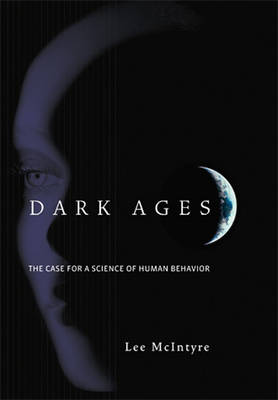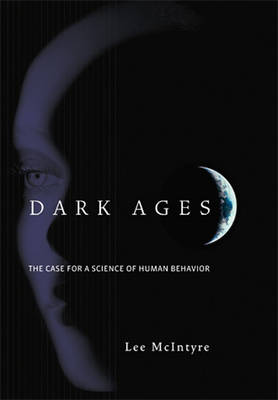
- Retrait gratuit dans votre magasin Club
- 7.000.000 titres dans notre catalogue
- Payer en toute sécurité
- Toujours un magasin près de chez vous
- Retrait gratuit dans votre magasin Club
- 7.000.0000 titres dans notre catalogue
- Payer en toute sécurité
- Toujours un magasin près de chez vous
Description
During the Dark Ages, the progress of Western civilization virtually stopped. The knowledge gained by the scholars of the classical age was lost; for nearly 600 years, life was governed by superstitions and fears fueled by ignorance. In this outspoken and forthright book, Lee McIntyre argues that today we are in a new Dark Age--that we are as ignorant of the causes of human behavior as people centuries ago were of the causes of such natural phenomena as disease, famine, and eclipses. We are no further along in our understanding of what causes war, crime, and poverty--and how to end them--than our ancestors. We need, McIntyre says, another scientific revolution; we need the courage to apply a more rigorous methodology to human behavior, to go where the empirical evidence leads us--even if it threatens our cherished religious or political beliefs about human autonomy, race, class, and gender. Resistance to knowledge has always arisen against scientific advance. Today's academics--economists, psychologists, philosophers, and others in the social sciences--stand in the way of a science of human behavior just as clerics attempted to block the Copernican revolution in the 1600s.
A scientific approach to social science would test hypotheses against the evidence rather than find and use evidence only to affirm a particular theory, as is often the practice in today's social sciences. Drawing lessons from Galileo's conflict with the Catholic church and current debates over the teaching of "creation science," McIntyre argues that what we need most to establish a science of human behavior is the scientific attitude--the willingness to hear what the evidence tells us even if it clashes with religious or political pieties--and the resolve to apply our findings to the creation of a better society.
Spécifications
Parties prenantes
- Auteur(s) :
- Editeur:
Contenu
- Nombre de pages :
- 176
- Langue:
- Anglais
- Collection :
Caractéristiques
- EAN:
- 9780262512541
- Date de parution :
- 01-04-09
- Format:
- Livre broché
- Format numérique:
- Trade paperback (VS)
- Dimensions :
- 127 mm x 193 mm
- Poids :
- 181 g

Les avis
Nous publions uniquement les avis qui respectent les conditions requises. Consultez nos conditions pour les avis.






